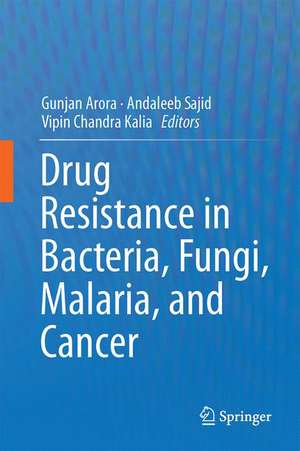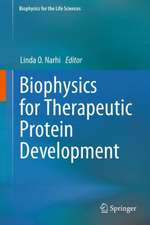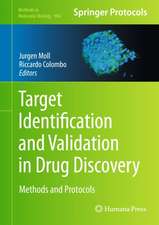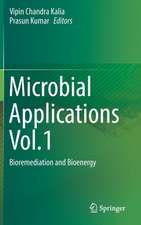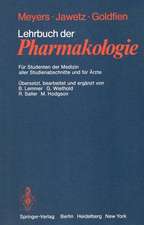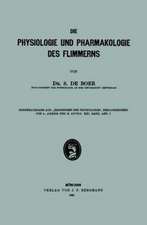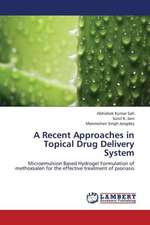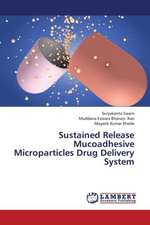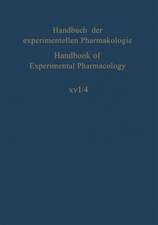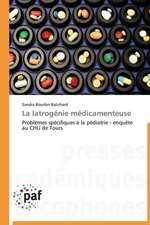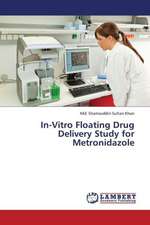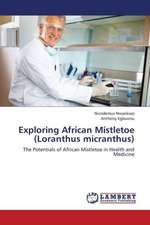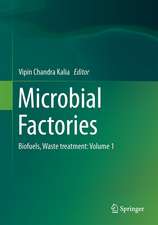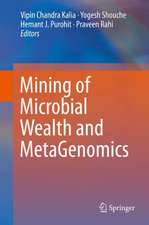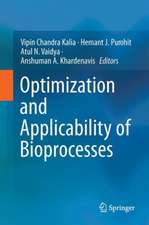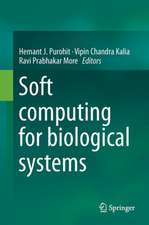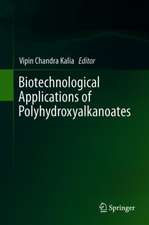Drug Resistance in Bacteria, Fungi, Malaria, and Cancer
Editat de Gunjan Arora, Andaleeb Sajid, Vipin Chandra Kaliaen Limba Engleză Hardback – 29 mar 2017
This book is a compilation of past and recent knowledge in the field of emerging drug resistance. The book covers major aspects of drug resistance in bacteria, fungi, malaria, and cancer.
Human survival on earth is constantly threatened by disease and syndrome. From the early days, the aim of research in medicine was to find therapeutic agents that can improve the quality of human life. Although humans are dependent on natural compounds from early days their dependence of drugs increased excessively in last century. The advances in chemistry and biology have helped researchers to identify the drugs that have improved treatment of many diseases. The primary factor for treatment of these diseases is dependent on the efficacy of drugs available. The development of resistance to these drugs is one of the major hindrances. Although there are number of books available on this topic, “drug resistance” biology across kingdoms has never been discussed in a coherent way.
| Toate formatele și edițiile | Preț | Express |
|---|---|---|
| Paperback (1) | 1113.27 lei 6-8 săpt. | |
| Springer International Publishing – 20 iul 2018 | 1113.27 lei 6-8 săpt. | |
| Hardback (1) | 1120.55 lei 6-8 săpt. | |
| Springer International Publishing – 29 mar 2017 | 1120.55 lei 6-8 săpt. |
Preț: 1120.55 lei
Preț vechi: 1179.53 lei
-5% Nou
Puncte Express: 1681
Preț estimativ în valută:
214.41€ • 223.87$ • 177.46£
214.41€ • 223.87$ • 177.46£
Carte tipărită la comandă
Livrare economică 05-19 aprilie
Preluare comenzi: 021 569.72.76
Specificații
ISBN-13: 9783319486826
ISBN-10: 3319486829
Pagini: 590
Ilustrații: XIV, 630 p. 64 illus., 49 illus. in color.
Dimensiuni: 155 x 235 x 35 mm
Greutate: 1.07 kg
Ediția:1st ed. 2017
Editura: Springer International Publishing
Colecția Springer
Locul publicării:Cham, Switzerland
ISBN-10: 3319486829
Pagini: 590
Ilustrații: XIV, 630 p. 64 illus., 49 illus. in color.
Dimensiuni: 155 x 235 x 35 mm
Greutate: 1.07 kg
Ediția:1st ed. 2017
Editura: Springer International Publishing
Colecția Springer
Locul publicării:Cham, Switzerland
Cuprins
Emerging themes in drug resistance. - Molecular Mechanism of Drug Resistance: Common Themes. - Diversity and evolution of microbial drug resistance. - Functional Roles of Highly Conserved Amino Acid Sequence Motifs A and C in Solute Transporters of the Major Facilitator Superfamily. - How pathogens survive drug pressure?. - Functional diversity and applications of mobile group II introns. - Bacterial resistance against antibiotics. - Drug-resistant tuberculosis. - Emergence of drug resistance in Mycobacterium and other bacterial pathogens - the post translational modification perspective. - Glycogen as Key Energy Storehouse and Possibly Responsible for Multi-Drug Resistance in Mycobacterium Tuberculosis. - Role of external and environmental factors in drug resistance emergence: gut microbiota. - Efflux mediated drug resistance in Staphylococcus aureus. - Tackling the Antibiotic Resistance: The “Gut” Feeling. - In silico analytical tools for Phylogenetic and Functional Bacterial Genomics. - Exploiting bacterial genomes to develop biomarkers for identification. - Human Fungal Pathogens and Drug Resistance Against Azole Drugs. -Drug Resistance in Malaria. - Drug Resistance in Cancer. - BCL2 Family Proteins and Other Role in Cancer Resistance. - Perturbed signaling and role of post translational modifications in cancer drug resistance. - Ovarian Cancer and Resistance to Therapies: Clinical and Laboratory Perspective. - Initiatives across countries to reduce antibiotic utilization and resistance patterns; impact and implications. - In silico approaches towards combating antibiotic resistance. - Synthetic Solutions to Drug Resistance. - Future of drug discovery.
Notă biografică
Dr. Vipin Chandra Kalia is presently working as Chief Scientist, and is the Deputy Director, at Microbial Biotechnology and Genomics, CSIR-Institute of Genomics and Integrative Biology, Delhi. He is a Professor, AcSIR, who obtained his M.Sc. and Ph.D. in Genetics, from Indian Agricultural Research Institute, New Delhi. He has been elected as: (1) Fellow of the National Academy of Sciences (FNASc), (2) Fellow of the National Academy of Agricultural Sciences (FNAAS), and (3) Fellow of the Association of Microbiologists of India (FAMI). His main areas of research are Microbial biodiversity, Bioenergy, Biopolymers, Genomics, Microbial evolution, Quorum sensing, Quorum quenching, Drug discovery and Antimicrobials. He has published 99 papers in Scientific journals such as (1) Nature Biotechnology, (2) Biotechnology Advances, (3) Trends in Biotechnology, (4) Annual Review of Microbiology, (5) Critical Reviews in Microbiology, (6) Bioresource Technology, (7) PLoS ONE, (8) BMC Genomics, (9) International Journal of Hydrogen Energy, and (10) Gene. He has authored 14 book chapters. His works have been cited 3267 times with an h index of 31 and an i10 index of 59. He has Edited 3 books: (i) Quorum Sensing vs Quorum Quenching: A Battle with No End in Sight (2015), (ii) Microbial Factories Vol. 1: Biofuels, Waste treatment (2015) and (iii) Microbial Factories Vol. 2: Biodiversity, Biopolymers, Bioactive Molecules (2015). He is presently the Editor-in-Chief of the Indian Journal of Microbiology and editor of: (1) Journal of Microbiology & Biotechnology (Korea), (2) International Scholarly Res. Network Renewable Energy, (3) Dataset Papers in Microbiology, and (4) PLoS ONE. He is a life member of the following Scientific societies: (1) Society of Biological Chemists of India (2) Society for Plant Biochemistry and Biotechnology, India; (3) Association of Microbiologists of India; (4) Indian Science Congress Association; (5) BioEnergy Society of India, and (6) the Biotech Research Society of India (BRSI). He is also a member of the American Society for Microbiology.
Textul de pe ultima copertă
This book is a compilation of past and recent knowledge in the field of emerging drug resistance. The book covers major aspects of drug resistance in bacteria, fungi, malaria, and cancer.
Human survival on earth is constantly threatened by disease and syndrome. From the early days, the aim of research in medicine was to find therapeutic agents that can improve the quality of human life. Although humans are dependent on natural compounds from early days their dependence of drugs increased excessively in last century. The advances in chemistry and biology have helped researchers to identify the drugs that have improved treatment of many diseases. The primary factor for treatment of these diseases is dependent on the efficacy of drugs available. The development of resistance to these drugs is one of the major hindrances. Although there are number of books available on this topic, “drug resistance” biology across kingdoms has never been discussed in a coherent way.Caracteristici
First book to give an overview on drug resistance spanning from microbes to primates Gives comprehensive insights in mechanisms of emergence of drug resistance Gives an outlook on the future of drug discovery
